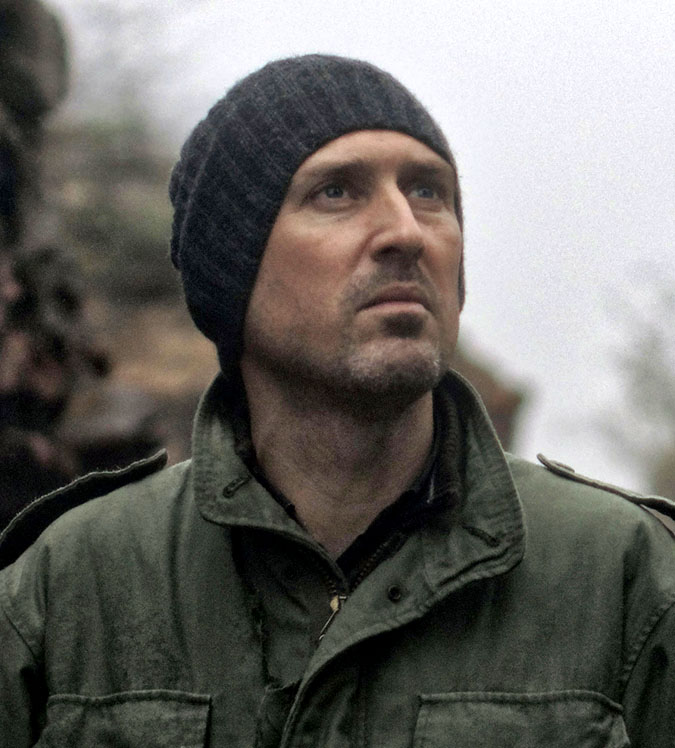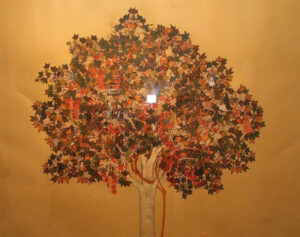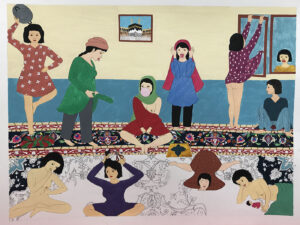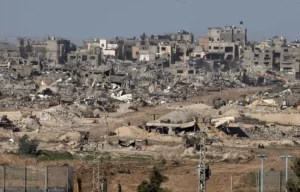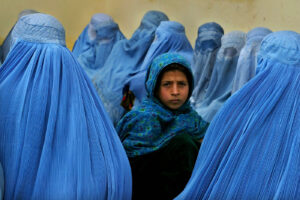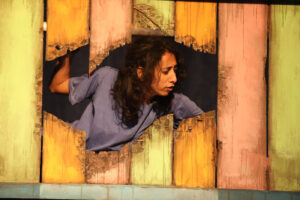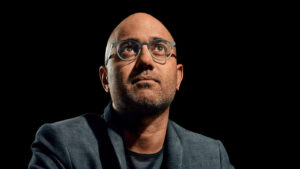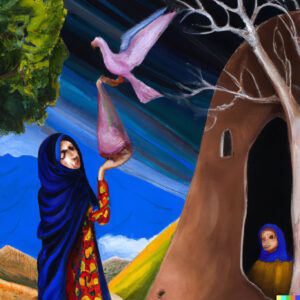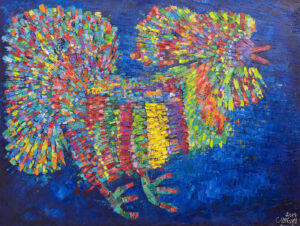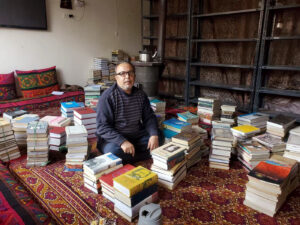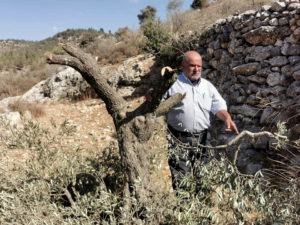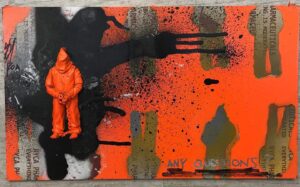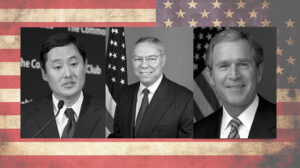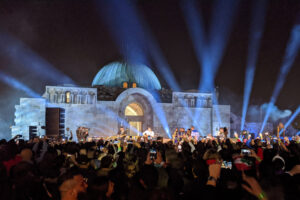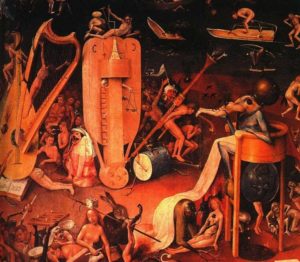Up, close and personal: How an Egyptian filmmaker documented the Taliban’s first year in power following the US withdrawal in 2022. You’ll soon be able to catch the doc on Just Watch.
Iason Athanasiadis
THESSALONIKI: What happens on the morning after history’s greatest superpower is driven out by a movement of medieval religious fundamentalists? The answer comes courtesy of Hollywoodgate, a documentary shot by the unassuming Ibrahim Nash’at, an Egyptian filmmaker and former al-Jazeera employee who arrives in Kabul shortly after NATO troops and remnants of the regime they set up scramble out of the country — a filmmaker seeking to make contact with the Taliban and expose their wholesome new persona.
“I wanted to see in whose hands Afghanistan was left,” said Nash’at in an interview with TMR. “Their first press conference didn’t seem real, and I knew that if I stayed for a bit, things would change and they’d revert to the Taliban we see today.”
The process of gaining access to the Taliban required connections, time and funds, which soon ran out. Nash’at considered giving up, but a chance acquaintance led him to the base that became his film’s setting, where he negotiated the terms of his access with Mawlawi Mansour, a member of the Taliban leadership and head of an air force entirely composed of American aerial leftovers. Instead of working his way top-down through an influential mediator, as he initially imagined doing, Nash’at accessed the Taliban from the grassroots up.
And so a heavy metal door at Kabul airport bearing the legend Hollywood Gate I rolls aside at the start of the film, plunging us into a CIA base also resembling a film studio demi-monde. Its vast hangars and millions of expensive articles discarded by the Americans tantalize the Taliban with the dizzying possibilities offered by the American arms, creating the illusion that they can become who they want to be.
Nash’at presents an observational film entirely reminiscent of producer Talal Derki’s Oscar-nominated Of Fathers and Sons (2017), and the Sundance-awarded Return to Homs (2013) where the director travels to his Syrian homeland during the ongoing civil war to observe life inside non-state armed groups. Harsh conditions push the protagonist of Return to Homs to segue from secular popular singer to jihadi aspirant, while Of Fathers and Sons examines the relationship between an Islamic State fighter and his offspring. As with Derki’s films, a director voiceover opens and closes Hollywoodgate, but otherwise the characters express themselves without the slightest direct intervention by the filmmaker, whose presence remains unobtrusive.
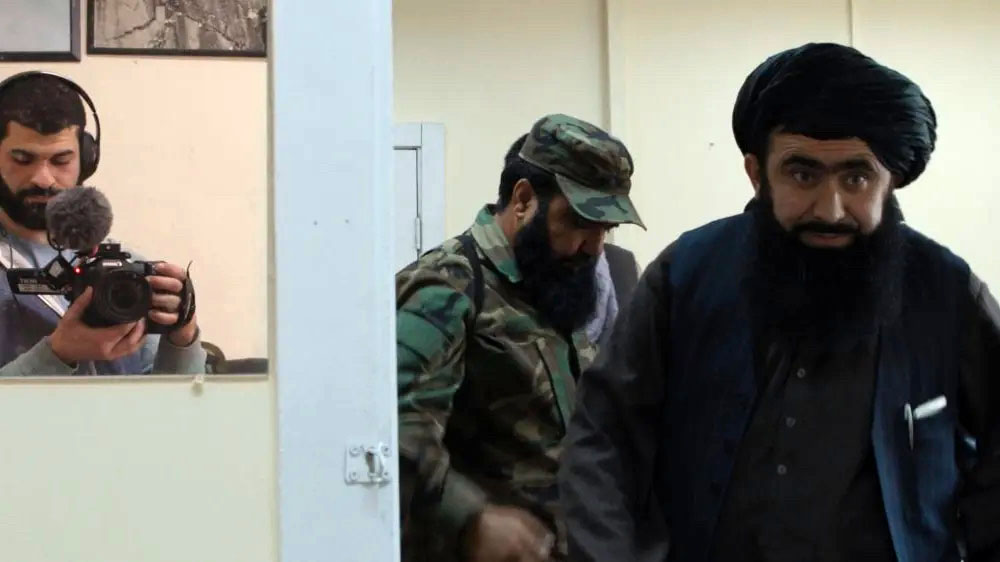
“I expected them to let me in because of my religious background but it was actually more the filming with world leaders that did it,” said Nash’at, whose previous job involved documenting the lives and times of prominent politicians for al-Jazeera news and talk-show programs. “I left my job as I was sick of mouthing the propaganda of world leaders, not having the chance to do any fact checking. I wanted to do something different and control the narrative.”
Nash’at’s first translator, a Taliban-supplied Arabic-speaker, was replaced by a more capable one, whose whispered summaries into the filmmaker’s earpiece guided him in refocusing the action but who was also diplomatic enough not to translate Nash’at’s occasional outbursts. Just as influential in overcoming the propaganda framework imposed by the Taliban’s very selective access-giving was the cultural distance that Nash’at’s subjects fell into the complacency of feeling, which encouraged them to forget that a formidable selection of five clip-on microphones and a shotgun mic powered by long-life batteries and backed up by a team of translators in Berlin recorded their every utterance.
The reams of text this approach produced would reveal the kind of insights into the deeper thoughts of the Taliban that drove the editorial prioritization of several scenes. The Taliban’s dislike of the filmmaker is palpable in the film, with the mics picking up much hushed backchat about killing him, and some jovial pointing of guns and pretend execution of Nash’at. But much of the gaucherie is also intentional, with Mawlawi Mansour laughing proudly as he describes his father’s death in a failed American attempt to assassinate him via a drone strike that killed over a dozen civilians.
The grand parade
One of the aspirational temptations for revolutionary groups succeeding overthrown regimes is to rapidly replicate their predecessors’ rituals. It is therefore little surprise when the Taliban, the very definition of an irregular guerrilla force, moved into the bases and offices left behind by NATO and celebrated their first year in power by putting on a military parade, which acts as the film’s culmination. By this point, Nash’at’s hand-held camera had captured the Taliban’s transformation from militia to military regime, though not without obstacles.
Retaining access, once secured, proves to be hard. Nash’at studiously ignored the newsworthy snippets proffered him by the Taliban as tests of his reliability, and ended up filming over seven months and five visits to Afghanistan. As the Taliban tired of his presence, they began pressing him to interview them, a documentary set-piece after which they could creatively end his access. By coyly refusing to do so, Nash’at impersonated an unlikely Shahrazad extending her time at the despot’s bedside.
In one scene, a character confessed to the filmmaker, as they drove past rows of destitute, burqa-wearing women sitting on the ground outside bakeries waiting to be issued flour, how he regretted the Americans’ departure; without the prospect of ambushing them and becoming a martyr, life seemed to have lost its flavor. A car decorated for a wedding passed by, honking joyfully.
Hollywoodgate is replete with fascinating cultural paradoxes: the Arabic-speaking Muslim who grew up in Cairo and lives in Berlin seeks to pull the veil away from a shadowy fighting force whose fighters often play hide-and-seek with the filmmaker. But any mystique the Taliban might have acquired after banishing the world’s mightiest army dissipates as we watch clownish scenes, such as when several battle-hardened fighters fail to calculate the answer to 100 times 67, resulting in ten times the correct sum being distributed among workers for their traveling expenses. Mawlawi Mansour orders a treadmill confiscated from one of the American gyms to be dispatched to his home to reduce the size of his belly, and his fighters cast smoldering looks at their likeness in the mirror as they fix their turbans. Indeed, one of the major ways in which Nash’at bypasses their initial hostility is by fixing heroic shots of them which tug at their vanity.
Nash’at turned both his background but also his inability to communicate with his Dari or Pashtu-speaking subjects to his advantage, and established misleading intimacies and distances. The truth lay somewhere in between, but he learned to leave the philosophical chat for Berlin cafés after an initial honest conversation he had with a sympathetic Talib about his worldview was reported to the leadership and nearly cost him the project.
“My upbringing allowed me to understand what’s happening there in a way most people wouldn’t grasp, especially in the West,” said Nash’at. “The Taliban’s claim to be an Islamic state and to represent me surely gives me the right to go there and make a film that shows that these guys do not represent me.”
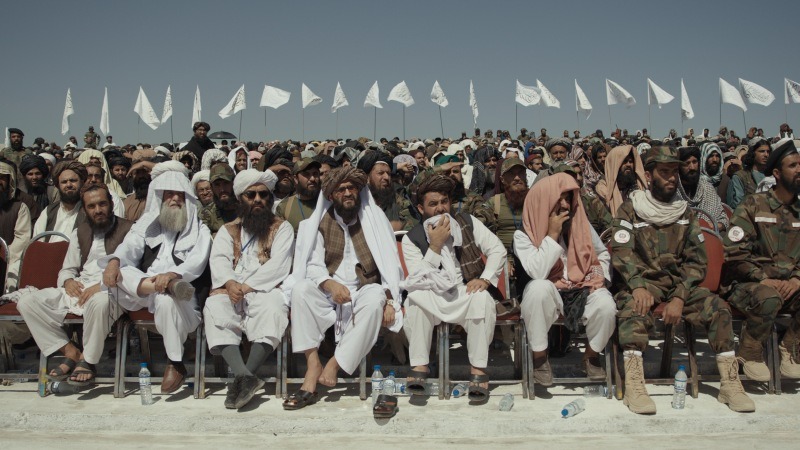
Once preparations for the parade started, it became the hottest ticket in town. The crowding of the stands with Afghanistan’s new diplomatic allies — Russia, China and Iran — was a study in the geopolitical weathervane, even as the lights remained off in the US Embassy in Kabul and America’s first newspaper, The New York Times, was snubbed. Nash’at got to be at the parade as Mawlawi Mansour’s “personal cameraman.” With fears running high that terrorist group ISIS-K would seek to strike it, even the participating pilots were kept ignorant of the location till the last moment.
Hollywoodgate is an impressive demonstration of the Taliban’s first year in power, as they both easternized and internationalized. After taking over the Americans’ impersonal workspaces, they orientalized them by pushing aside the metal office chairs and conducting the business of hiring and firing from carpets. A commander who instinctively chucks an empty bottle of water onto the ground checks himself and orders a subordinate to pick it up, then beatify the spot by planting flowers. Diplomatic contacts with international actors like China, Russia and Iran develop, with one Talib even expressing anxiety that something under discussion might upset China. But the crux of this film is in capturing a geopolitical moment, and showing how the over $7bn worth of weapons left behind by the Americans, some of it disabled, is fixed and shown off in a monumental parade stamped by that Taliban aesthetic of multiple white banners fluttering in a Central Asian plateau’s bone-dry desert breeze.
Nash’at’s access ended when the Taliban’s secret service summoned him to their office to check his footage. Feeling something was wrong, he headed to the airport and flew away. He has not been in touch with the Taliban since, nor does he know whether they have seen his film.
By the film’s end, the Taliban are so comfortable in their new skin that the minister is happily threatening the Tajik Minister of Defence over his cell phone as he is chauffeured around town. He has many shiny new toys, and he is anxious to use them. War begets war. Everything must change for everything to remain the same.




